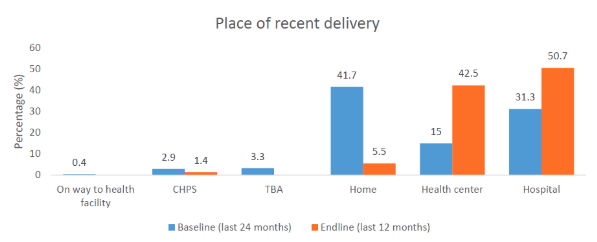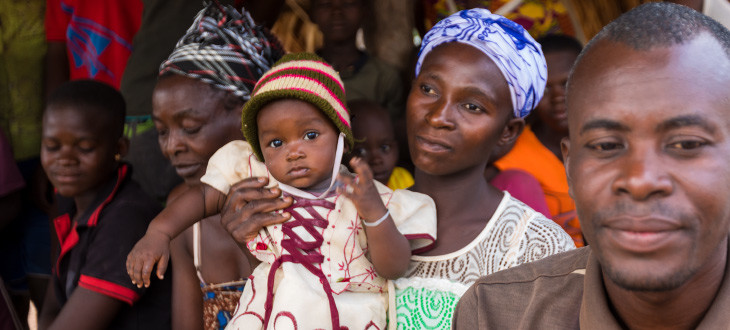Key Findings from MAZA’s Independent Evaluation
MAZA is pleased to share the results of the independent evaluation of our work in Bunkpurugu-Yunyoo District (BYD), Northern Region, our second district of operation. The School of Allied Health Sciences at the University for Development Studies, Tamale, conducted this study with funding from the USAID Systems for Health Project. The baseline survey was completed in March 2017, a month before MAZA was launched in the district while the endline survey followed a year later. The evaluation was both quantitative and qualitative. The researchers assessed the effects MAZA had had on health care seeking behaviors in pregnancy and infancy as well as on the economic lives of MAZA drivers and traders and farmers in the communities we serve. Find below a brief summary of key results:
Health
- Deliveries conducted by health workers skilled in the care of pregnant women have doubled from 49% during the baseline period to 96% at the endline.
- Consistent with the above, deliveries in the community far away from skilled health care in case of any emergency have reduced from 45% in the baseline to 6% in the endline while deliveries in health centres or hospitals doubled from 46% to 93% during the same period (see figure 1).
- Of the 189 people interviewed for the endline survey, 90% had heard of MAZA and almost half (46%) had used our services; the main reason for using MAZA’s tricycles was for women in labour seeking skilled healthcare (73%). Only 3% had used our service to transport a sick infant to a health facility.
- Of the labour cases, almost all (99.6%) of the women arrived at the health facility before delivery, all of them survived the delivery and 99.6% had healthy babies.
- MAZA transportation was rated as fast, safe, accessible and free of charge for pregnant women, women in labour and sick newborns.

Figure 1: Changes in delivery location between baseline and endline surveys.
Economic
- The majority (78%) of MAZA drivers generate between GHS 50.00 and GHS 100.00 per week using the MAZA tricycle for commercial purposes like transporting people to market or agricultural produce from farms to homes.
- 96% of the farmers interviewed reported having post-harvest losses of less than 10% in the endline compared to only 35% in the baseline period (see figure 2) and they attributed this to access to motorized tricycles, including MAZAs.
- The traders interviewed reported that the overall impact of the MAZA motorized tricycle were improved access, reduced cost of transportation of goods and timeliness of driver when called to provide services.

Figure 2: Reduction in post harvest losses between baseline and endline periods.
Disclaimer: This study was co-funded by MAZA, United States Agency for International Development (USAID) and the USAID Systems for Health Project, cooperative agreement AID-641-A-14-00002. This study was made possible in part through the support of the American people through the United States Agency for International Development (USAID). The findings of this study are the sole responsibility of MAZA and the University for Development Studies, and do not necessarily reflect the views of USAID or the United States Government.





